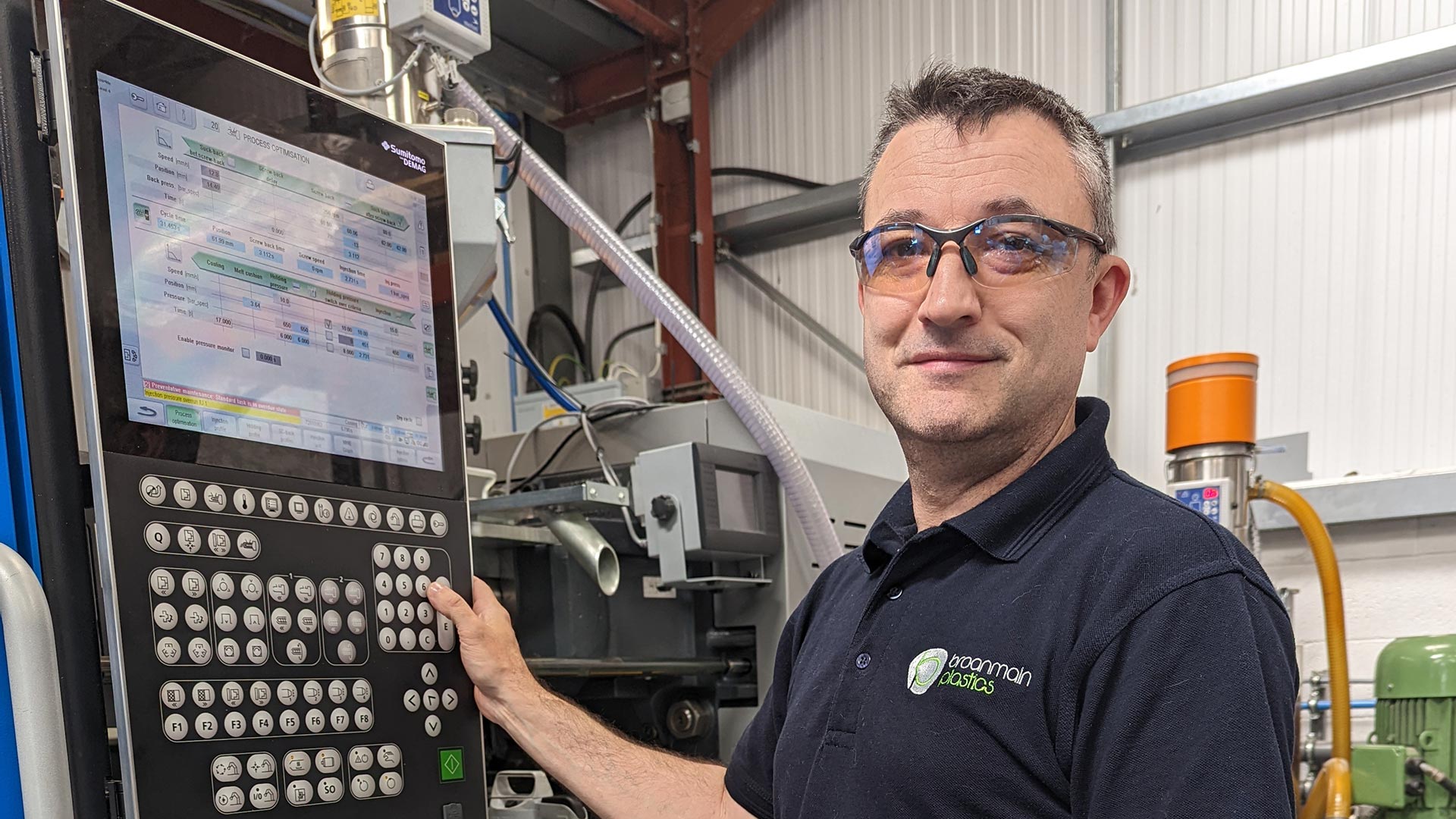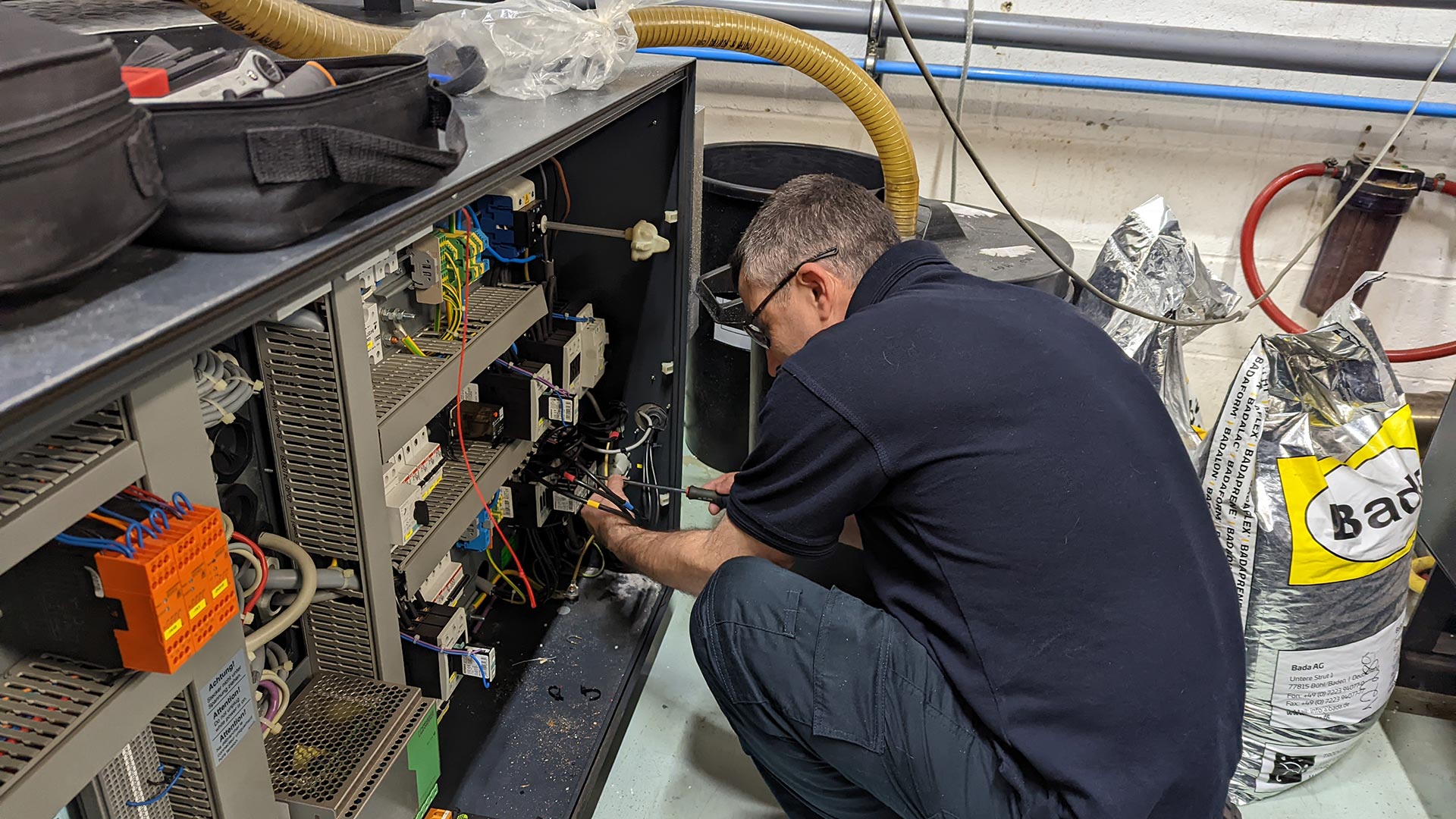
Image 1 Maintenance Engineer Steven Romano has helped Broanmain to introduce a number of process and site improvements to help cushion the financial shock of energy price rises.
At least a quarter of British SMEs polled by a recent YouGov survey suggests that for at least a quarter of them power bills will become unsustainable within the next few months. The fallout could be huge, particularly among the SME plastic processing community. With manufacturing insolvencies soaring by 63 percent in the last 12 months according to Mazars, Surrey-based technical moulder and SME Broanmain Plastics has proactively powered through in its approach to tackle the spiralling energy costs. Here’s how.
This energy crisis is a worry for every individual and enterprise. Not least manufacturing SMEs that are utterly reliant on power to make parts. Despite the welcome six month reprisal, as we hurtle into winter, even capping the costs at less than half the market rate is still a cost pressure that is hard for the most energy efficient business to absorb.
The BPF’s Energy Management in Plastics Processing guide indicates that energy usage and costs can be reduced by over 30 percent through better management, capital investment and maintenance actions. Although there’s not a single ‘megawatt’ energy saving solution – moulding technical components requires power after all – Broanmain’s new Maintenance Engineer Steven Romano has taken the lead (and a leaf out of the BPF book) and introduced a number of process and site improvements to help cushion the financial shock.
Site improvements
A planned maintenance regime might not sound like a Eureka! energy saving scheme, yet as part of a continual improvement programme can deliver surprising and quick results. As testament, Steven has spent the past six months examining Broanmain’s entire fleet of machinery and created a modified iPlan maintenance schedule that red flags more pressing maintenance tasks to reduce machine downtime.
Aligned to the company’s material waste reduction and First Time True quality culture, he explains: “Having this schedule keeps our technologies running as cleanly and efficiently as possible, cutting our production carbon footprint even further.”
Having worked in maintenance for more than 30 years, from his experience Steven estimates that an effective maintenance regime can reduce unplanned machine breakdowns by as much as 60 percent.
Another simple routine to introduce is monthly air and water filter changes, states Steven. Cleaner water protects tools. Less rust also reduces system contaminations, preventing component defects and material waste. Plus significantly improves heater efficiency.
Live dashboard data
Tapping into energy supply data over the Wi-Fi, the team can now view exactly what it is costing by the hour to run the company’s fleet of 11 injection moulding machines, plus all ancillary, finishing and tool making equipment. Even slight modifications, e.g. barrel insulation to contain heat, has already resulted in visible energy saving improvements.
Fix compressed air leaks
Experts estimate between 20 and 40 percent of generated compressed air is lost due to leaks. Broanmain has addressed this by putting in two isolation valves and shutting them off for the building and compressor, as well as incorporating a routine inspection and reporting system for air leaks. These actions, along with a new timer controller on the compressor, is saving the company in the region of £17,000 yearly.
Double shifts slashes power-up costs
Given that the most energy intensive process in injection moulding is heating material up, to limit machine start-ups, Broanmain has moved virtually all production to one site and now operates two overlapping day and night shifts Monday to Thursday.
Combined with carefully-considered production sequences, fewer machine shut offs, tool changeovers and restarts, is proving to be more productive and cost efficient, and increases Broanmain’s manufacturing capacity even further.
Drive upgrades
Several years ago Broanmain invested in an all-electric IntElect featuring all-electric drive technology from Sumitomo (SHI) Demag. However, the remainder of its injection moulding machinery park is a blend of hydraulic and hybrid technology.
In order to optimise investments while simultaneously improving efficiency, the firm is currently exploring the benefit of upgrading to variable speed drives to save energy use during the curing time. To benchmark the savings, this will initially be rolled out on the company’s largest hybrid machine.
Power to its people
An energy efficient and robust production plan and maintenance programme is only as good as the data sourced, measured and benchmarked. However, it’s the small actions taken by the entire workforce through better engagement and communication that can make the biggest dent in energy bills.
Commenting that energy consumption is not purely about machinery assets, but equally the actions taken by staff, Steven expands: “It’s a refreshing change to see workforce suggestions roll out so swiftly. It feels like everyone across the firm is thinking like a process optimisation and energy custodian.”
Since joining the moulding firm in May 2022, Steven has shared with the entire workforce and management a toolbox of tricks and tips to curtail energy consumption. This includes seeking feedback on future actions. One staff suggestion put forward and currently being instigated includes designing a machine shut-off traffic light system. Providing clear unsupervised visual instructions and flagging when guidance should be sought by production managers.
Managing Director Jo Davis concludes: “Achieving a sustainable and viable energy reduction plan is reliant on the input and commitment of every single person. Not only does this engagement and the introduction of lower emitting technology promote best practice, it creates process improvement champions where everyone can feel confident playing their part.”
As a direct result of these energy savings, Broanmain has been able to pull forward pay increases to support its workforce with the cost of living crisis, as well as introduce new flexible working arrangements, including an early Friday finish, to nurture a better work/life balance.

Image 2 Broanmain’s modified iPlan maintenance schedule red flags more pressing maintenance tasks to reduce machine downtime
